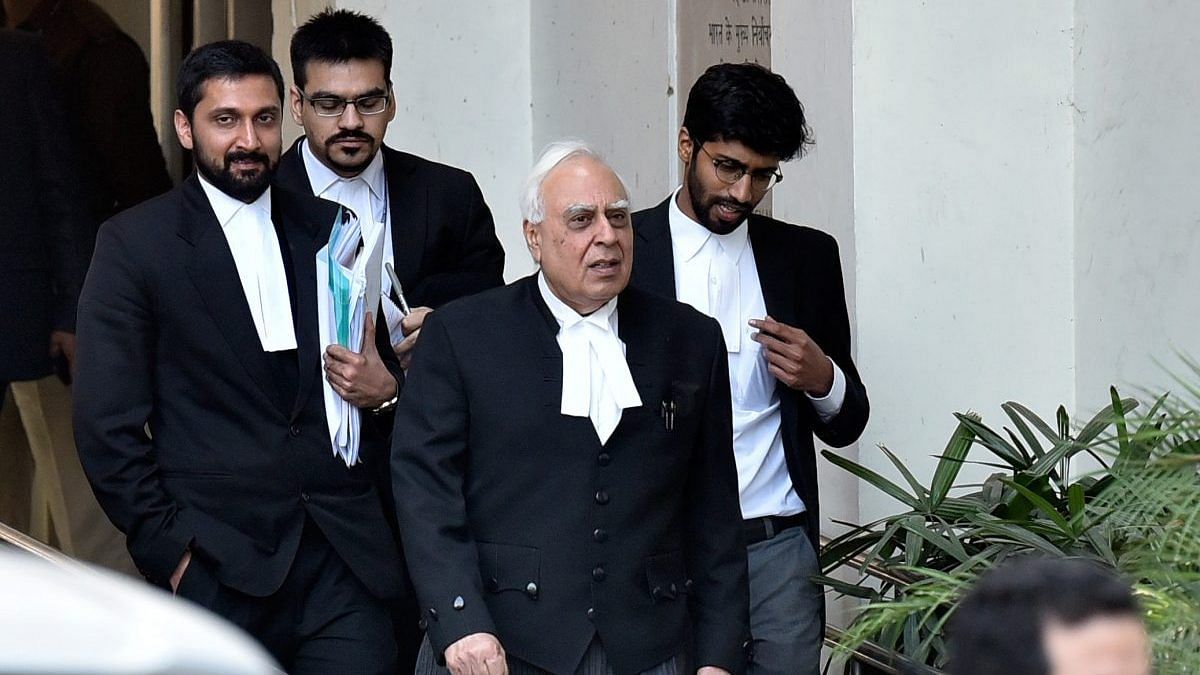From UPSC perspective, the following things are important :
Prelims level: Judicial Review
Mains level: constructive dialogue between the legal and political spheres

Central idea
The article discusses the challenge of legislators practicing law, particularly the dual role of legislator-lawyers, raising concerns about potential conflicts and the normalization of political intervention in the judiciary. It criticizes Kapil Sibal’s confrontational approach, citing its impact on judicial independence, and emphasizes the delicate balance needed for an independent judiciary amid intertwining political and legal roles.
Key Highlights:
- Dual Roles of Legislator-Lawyers: Legislators practicing law face a dilemma, mixing politics with the legal profession, raising concerns about potential conflicts of interest.
- Normalization of Political Intervention: Allegations by Kapil Sibal suggest a trend of normalizing political intervention in the judiciary, using claims like “courts being on trial” to influence decisions.
- False Equivalence with Emergency Era: Critique based on a false equivalence between the 1975 Emergency and present times, disregarding the unique historical context and the active role of the judiciary.
Key Challenges:
- Political-legal Nexus: The intertwining of political and legal roles, especially in the case of legislator-lawyers, poses challenges to the independence and integrity of the judiciary.
- Confrontational Criticism: Sibal’s confrontational criticism, accusing the judiciary of undergoing a radical shift under external pressures, raises concerns about the impact on public trust and institutional respect.
- Undermining Judicial Independence: Multi-layered actions that undermine judicial independence can erode public faith in legal institutions and potentially influence future verdicts.
Key Terms and Phrases:
- Constitutional Amendments: Reference to the numerous constitutional amendments during the 1975 Emergency.
- Judicial Review: The Supreme Court’s expanded role in reviewing legislation on grounds like constitutional morality, manifest arbitrariness, and transformative constitutionalism.
- Impeachment Proceedings: Mention of the threat of impeachment proceedings against Chief Justice Dipak Misra, perceived as an attempt to pressure the judiciary.
Key Quotes:
- “Courts being on trial” – Described as a sophisticated tool to easily deride any unfavorable decision and question the judiciary’s independence.
- “Institutional sabotage” – Sibal’s comments on institutional sabotage are deemed wildly inaccurate and speculative.
Key Statements:
- False Equivalence Critique: The critique based on a false equivalence between the 1975 Emergency and present times, emphasizing the active role of the judiciary in the current era.
- Confrontational Criticism Impact: Sibal’s confrontational criticism may have a chilling effect on the judiciary’s functioning, potentially influencing future verdicts and legal processes.
- Delicate Balance: Emphasizing the need to respect the delicate balance between political advocacy and judicial independence, especially for legislator-lawyers.
Key Examples and References:
- Defections Cases: Reference to recent Supreme Court decisions concerning defections impacting public trust in the democratic process.
- Impeachment Proceedings Threat: Mention of the perceived attempt to pressure the judiciary through the threat of impeachment proceedings against Chief Justice Dipak Misra.
- Sibal’s Role in Criticism: Highlighting Sibal’s consistent and atypical criticism of Supreme Court verdicts, raising questions about his dual roles.
Key Facts and Data:
- Supreme Court’s Intrusive Role: Acknowledgment of the Supreme Court’s more intrusive role in the past decade, impacting the role of the democratically elected legislature.
- Sibal’s Political Transition: Recognition of Kapil Sibal’s transition from a Congress leader to seeking political space, influencing his views and legal perspectives.
Critical Analysis:
- Intertwining Roles Challenge: The intertwining of political and legal roles challenges the delicate balance needed for an independent judiciary and erodes public trust.
- Ethical Standards for Politician-Lawyers: The need for politicians, especially legislator-lawyers, to adhere to ethical standards and maintain the delicate balance between political advocacy and judicial independence.
- Impact on Democracy: Actions perceived as undermining judicial independence can have a profound impact on democracy, influencing public perception and institutional respect.
Way Forward:
- Respect for Judicial Independence: Emphasizing the crucial need to respect the delicate balance between political advocacy and judicial independence to safeguard the credibility of legal institutions.
- Ethical Considerations: Encouraging politicians, especially those with legal acumen, to consider ethical standards in their dual roles to avoid eroding public faith in the judiciary.
- Public Perception Management: Considering how opinions are presented to manage public perception and maintain institutional respect, ensuring a constructive dialogue between the legal and political spheres.
Get an IAS/IPS ranker as your 1: 1 personal mentor for UPSC 2024
